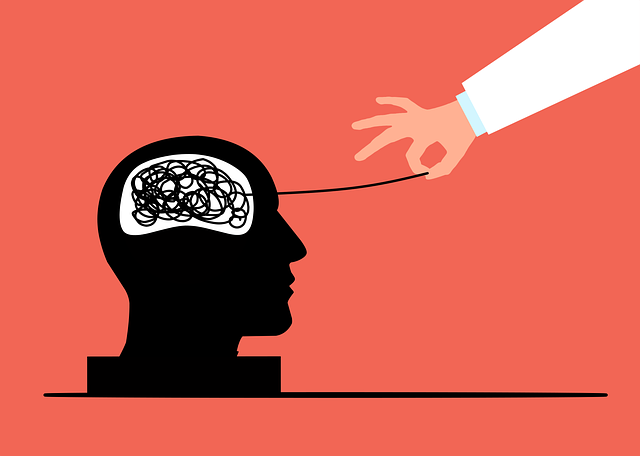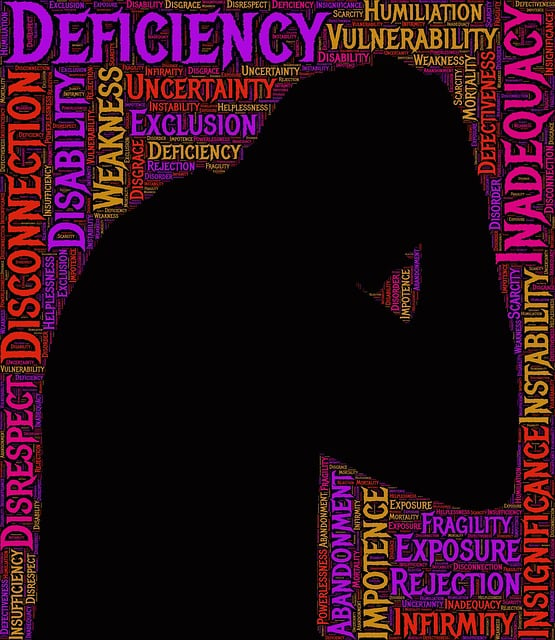Cultural competency is vital in healthcare for providing equitable, tailored care, especially to patients from diverse backgrounds or marginalized communities. Training equips providers with communication, empathy, and conflict resolution skills, including mindfulness meditation, to overcome biases, build trust, and adapt to cultural differences. For conditions like Parker Dissociative Disorder (PDD), understanding cultural nuances is crucial as unconscious prejudices can impact diagnosis and treatment. Comprehensive training, combined with self-care practices, fosters inclusive environments and improves public health outcomes by ensuring all patients receive respectful, culturally sensitive care.
Healthcare provider cultural competency training is an essential tool for improving patient care, especially in diverse communities. This article explores the critical need for such training, focusing on how cultural biases can impact healthcare delivery and patient outcomes. We delve into specific challenges faced by individuals with Parker Dissociative Disorder, examining the role of cultural sensitivity in therapy. Additionally, we discuss effective training approaches and methods for implementing and measuring successful cultural competency programs.
- Understanding Cultural Competency in Healthcare: A Necessity
- The Impact of Cultural Biases on Patient Care
- Parker Dissociative Disorder: Unraveling the Challenges
- Training Approaches for Enhancing Cultural Sensitivity
- Implementing and Measuring Effective Cultural Competency Programs
Understanding Cultural Competency in Healthcare: A Necessity

In today’s diverse healthcare landscape, cultural competency is no longer an optional skill but a necessity. It involves understanding and respecting the unique cultural beliefs, values, and practices of patients, especially those from underrepresented or marginalized communities. This approach ensures that every individual receives care tailored to their specific needs and backgrounds, fostering trust and improving health outcomes. For instance, addressing the complex issues faced by individuals with conditions like Parker Dissociative Disorder Therapy requires a nuanced understanding of cultural contexts, as these can significantly impact treatment engagement and effectiveness.
Cultural competency training equips healthcare providers with essential tools for effective communication, empathy, and conflict resolution techniques (such as mindfulness meditation and stress management strategies). By incorporating these practices, professionals can navigate complex situations more harmoniously, resolve misunderstandings, and deliver high-quality care. The benefits extend beyond individual patient interactions, as culturally competent healthcare systems foster better community relationships, promote health equity, and ultimately contribute to improved public health outcomes.
The Impact of Cultural Biases on Patient Care

Cultural biases can significantly impact patient care in healthcare settings, often leading to misunderstandings and disparities in treatment outcomes. These biases, whether conscious or unconscious, are rooted in societal norms, personal experiences, and stereotypes that influence how professionals interact with patients from diverse cultural backgrounds. For instance, a study on Parker Dissociative Disorder Therapy highlights how cultural prejudices can affect the diagnosis and treatment of mental health conditions, particularly among minority groups.
Emotional intelligence plays a crucial role in mitigating these biases. Healthcare providers with strong emotional intelligence are more adept at recognizing and managing their own emotions and understanding the emotions of others. This fosters effective communication, builds trust, and promotes sensitivity to cultural differences. Mental wellness education programs that incorporate mental health education and design inclusive environments can empower healthcare professionals to deliver patient-centered care, ensuring every individual receives respect and consideration regardless of their cultural identity or background.
Parker Dissociative Disorder: Unraveling the Challenges

The Parker Dissociative Disorder (PDD) presents unique challenges for healthcare providers. This complex mental health condition, characterized by altered states of consciousness and fragmented memory, requires specialized care. Understanding PDD involves recognizing its multifaceted symptoms, including depersonalization, derealization, and dissociative episodes. Effective therapy for PDD often incorporates techniques from cognitive-behavioral therapy (CBT) and dialectical behavior therapy (DBT), tailored to the individual’s specific needs.
Healthcare provider training in cultural competency is crucial when addressing disorders like PDD. Many individuals with PDD come from diverse backgrounds, each bringing its own cultural nuances and barriers to treatment. Mental wellness professionals must employ effective communication strategies that consider these cultural differences to foster trust and understanding. Additionally, public awareness campaigns development can play a vital role in reducing stigma and promoting early intervention for PDD, ultimately enhancing access to quality care.
Training Approaches for Enhancing Cultural Sensitivity

Cultural competency training is an essential tool to equip healthcare providers with the skills to deliver effective care to a diverse range of patients. One innovative approach gaining traction is the integration of dissociative disorder therapy techniques, such as those employed by the Parker Dissociative Disorder Therapy model. This method encourages professionals to explore their own cultural biases and unconscious assumptions, fostering a deeper understanding of patient experiences. By delving into these internal processes, healthcare workers can enhance their sensitivity to different cultural perspectives.
Furthermore, training should emphasize self-care routine development for better mental health as it directly impacts providers’ ability to remain empathetic and present during patient interactions. Encouraging confidence boosting self-care practices can help reduce stress and burn-out, allowing professionals to navigate complex cultural situations with resilience. These strategies, combined with ongoing education, create a more inclusive healthcare environment where diverse patients feel heard and understood.
Implementing and Measuring Effective Cultural Competency Programs

Implementing effective cultural competency training programs is crucial for healthcare providers to bridge communication gaps and deliver quality care. These initiatives go beyond surface-level understanding; they foster a deeper appreciation for diverse cultures, beliefs, and behaviors. One successful approach involves incorporating self-awareness exercises that encourage reflection on personal biases and assumptions. For instance, role-playing scenarios can simulate patient interactions, allowing trainers to observe and address cultural nuances in real-time.
Measuring the impact of these programs is equally important. Regular assessments, such as pre and post-training surveys, can gauge knowledge retention and attitude shifts. Additionally, tracking patient outcomes and satisfaction rates provides valuable insights into the practical application of cultural competency. For specific disorders like Parker Dissociative Disorder Therapy, tailored training modules that delve into unique cultural expressions and challenges associated with these conditions can significantly enhance care delivery. Incorporating Public Awareness Campaigns Development strategies also contributes to fostering inclusive healthcare environments, ultimately strengthening the bond between providers and diverse patient populations.
Healthcare provider cultural competency training is not just a recommendation, but an indispensable tool to navigate the diverse landscape of modern patient care. By understanding and addressing cultural biases, professionals can significantly improve outcomes for all patients, including those with complex conditions like Parker Dissociative Disorder. Implementing effective programs that incorporate innovative training approaches ensures healthcare remains accessible, sensitive, and tailored to each individual’s unique needs. This holistic approach not only enhances patient satisfaction but also fosters a more inclusive and equitable healthcare system.











